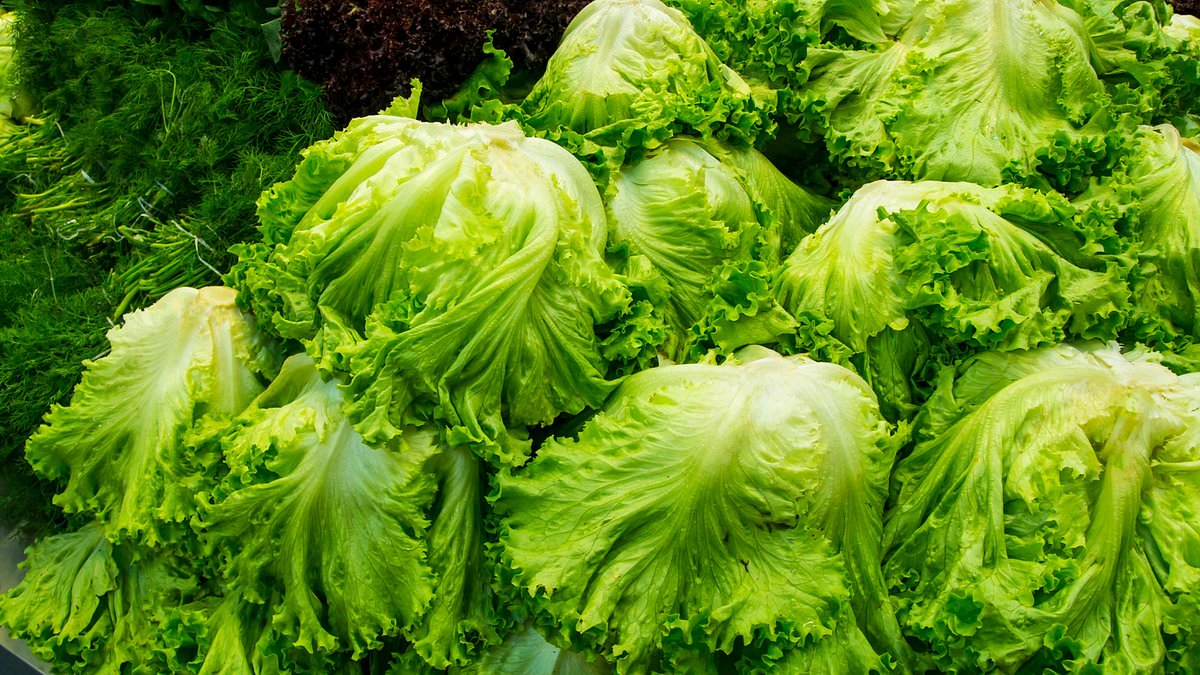One person is suspected of dying from the E. coli outbreak linked to tainted salad leaves, health officials have said.
No details have been released on the age or location of the victim with health chiefs only stating they had an underlying medical condition and that they died last month.
The update, from the UK Health Security Agency (UKHSA), also reported that as of 25 June a further 19 cases infection of Shiga toxin-producing E. coli (STEC) have been confirmed.
This takes the total number of cases to 275, with about half of known cases needed to hospital care as a result of their infection.
The infection has hospitalised 122 and to date seven cases of the severe haemolytic uraemic syndrome (HUS), a medical emergency linked to STEC which can lead to kidney failure and death have been reported.
Another death among STEC patients was also recorded by health officials but they said, based on medical data, this isn’t believed to have been caused by the infection.
UKHSA said that although the rate of new STEC cases is declining they expect more cases in the coming days as further samples from suspected patients are analysed.
The E. coli outbreak is believed to be linked to tainted lettuce leaves and earlier this month more than 60 sandwiches, wraps and salads sold in 11 major shops were been slapped with ‘do not eat’ alerts as precautionary measure.
Darren Whitby, head of incidents at the Food Security Agency which assisting UKHSA in the E. coli investigation, said while lettuce is still the prime suspect, investigations were ongoing.
‘Although we are confident in the likely source of the outbreak being linked to lettuce, work continues to confirm this and identify the root cause of the outbreak with the growers, suppliers and manufacturers so that actions can be taken to prevent a re-occurrence,’ he said.
Experts believe the texture of lettuce makes it more prone to being contaminated with E. coli though water tainted with infected animal faeces and the fact it’s not cooked, which would usually kill off bugs, increasing the risk.
STEC is considered to be extremely infectious, and in up to 15 per cent of cases, the bug can cause HUS with children under the age of five are at the highest risk.
A small proportion of adults may develop a similar condition called thrombotic thrombocytopaenic purpura (TTP).
Symptoms of STEC generally vary from mild to bloody diarrhoea, UKHSA says, with around half of people infected experiencing the latter.
Vomiting, fever and stomach cramps are other tell-tale signs of an infection.
While the majority of the 275 known cases are thought to have been from consumption from infected food, two are believed to have been passed from person to person, for example parents caring for children who caught the bug.
England has the lion’s share of cases at 182, with 58 in Scotland and 31 in Wales.
Four cases have also been reported in Northern Ireland though these patients are thought to have been infected while visiting England.
People have been advised to contact NHS 111 or their GP if they or their children show any symptoms of E. coli infection.
For children under five symptoms can include disinterest in breast or bottle feeding and signs of dehydration such as fewer wet nappies.
Both adults and children are advised to call NHS 111 or their GP if they keep vomiting for two days or have diarrhoea for a week.
Anyone suffering bloody diarrhoea or bleeding from the bottom should call NHS 111 or their GP immediately.
Those who are infected are advised to not return to work, school or nursery until 48 hours after symptoms have stopped.
